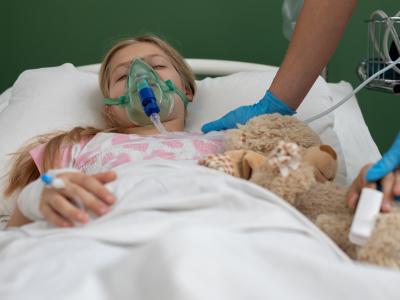A quality improvement intervention implemented at three pediatric urgent care clinics (UCCs) resulted in more children with skin and other soft-tissue infections (SSTIs) receiving the recommended course of antibiotics, researchers reported today in Pediatrics.
After an evaluation of antibiotic use at the three pediatric UCCs found that only 60% of the children with SSTIs received the recommended 5 to 7 days of antibiotics, with the other 40% receiving more than 7 days, researchers with Children's Mercy Hospital in Kansas and the University of Missouri Kansas City surveyed providers to better understand factors contributing to longer antibiotic durations. They then developed a Plan-Do-Study-Act (PDSA) intervention that included three cycles.
Cycle 1 focused on educating providers about shorter antibiotic courses, cycle 2 included modifying the electronic health record to display antibiotic orders from shortest to longest duration, and cycle 3 provided project outcome and balancing measure updates to providers.
To assess the impact of the intervention, the researchers created monthly reports on patients with SSTIs from July 2020 to December 2021. The primary outcome was the percentage of patients receiving 5 to 7 days of oral antibiotics for SSTIs.
During the study period, 2,746 patient encounters for SSTIs occurred, of which 2,146 met the criteria for inclusion. After the three PDSA cycles were completed, the percentage of children receiving 5 to 7 days of antibiotics had risen from the baseline of 60% to 86%, and the improvement was sustained through May 2022. In addition, there was no increase in the proportion of patients returning to the UCCs with an SSTI diagnosis because of treatment failure.
"Our project serves as a model for other institutions seeking to improve their antibiotic durations for SSTIs and other diagnoses for which antibiotics are indicated," the study authors concluded.











